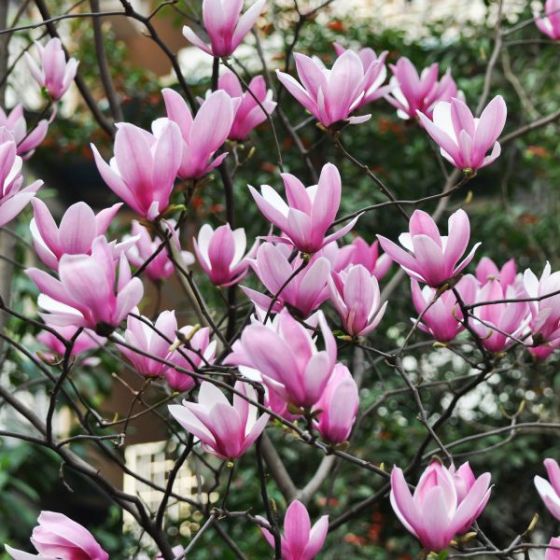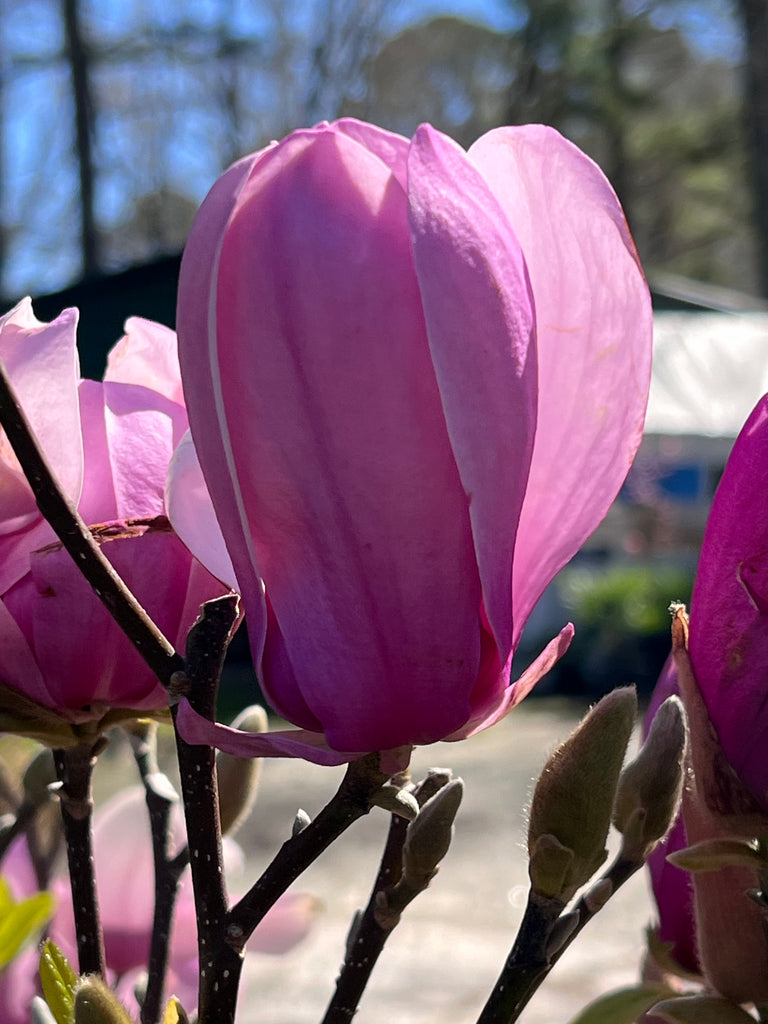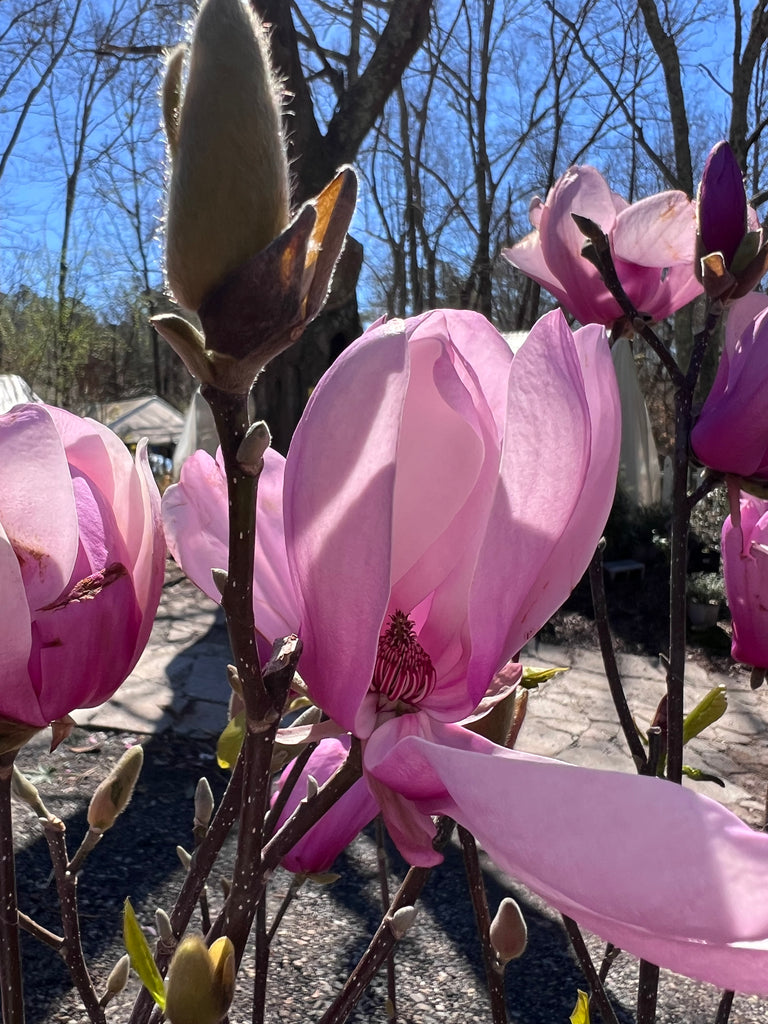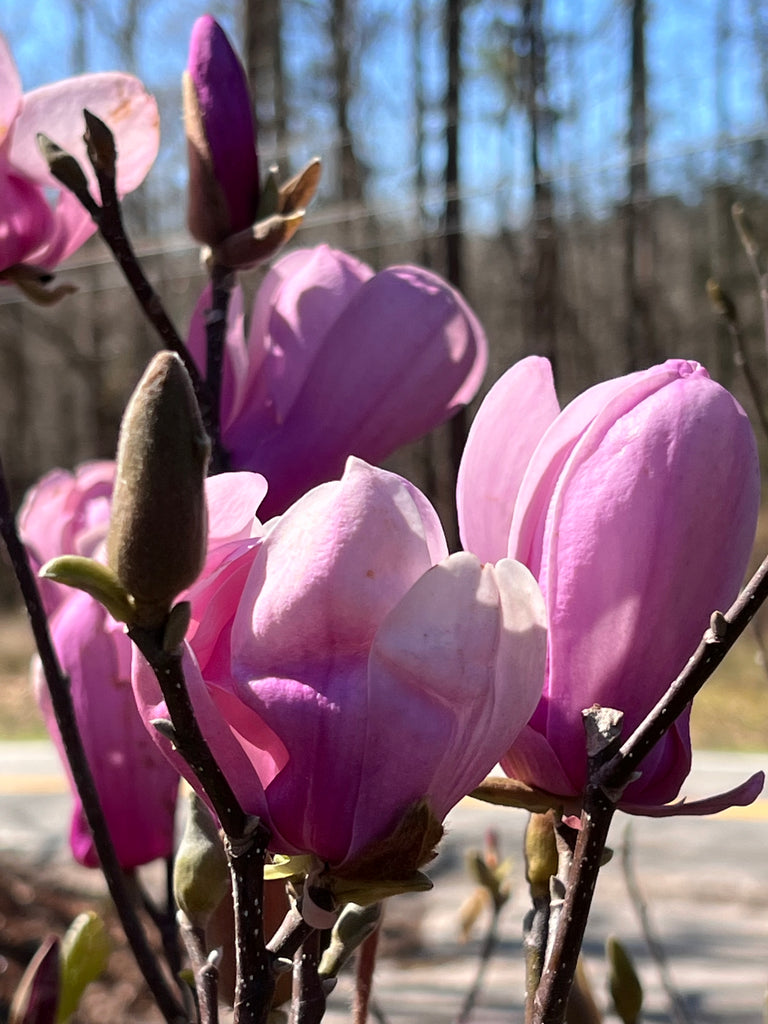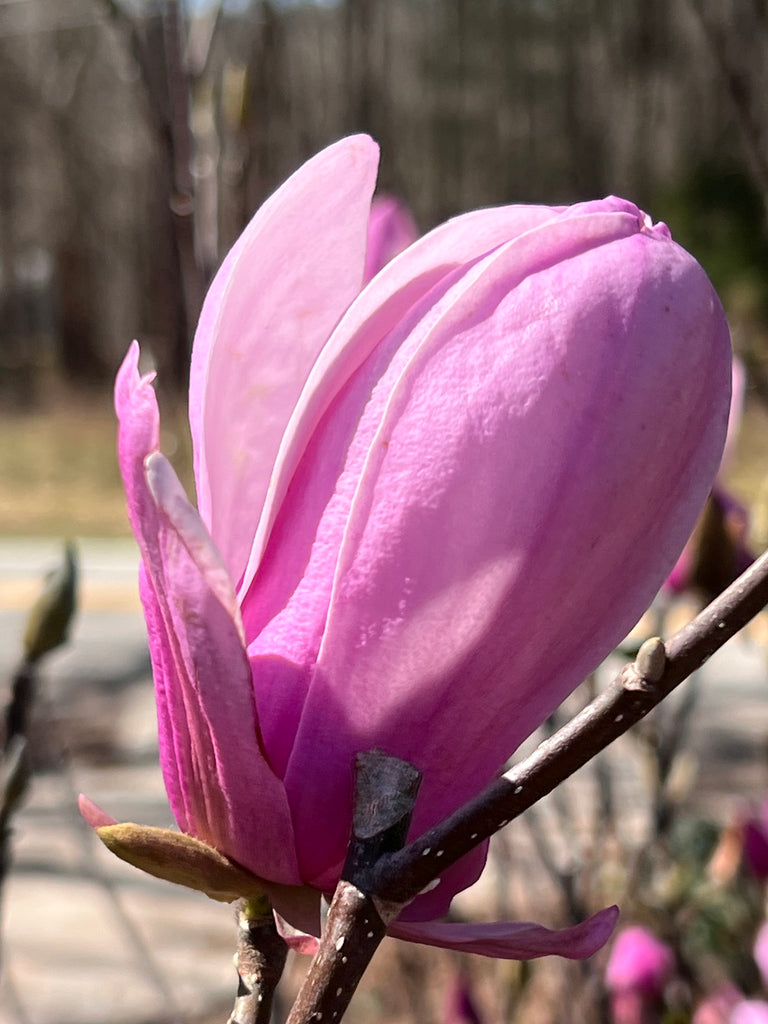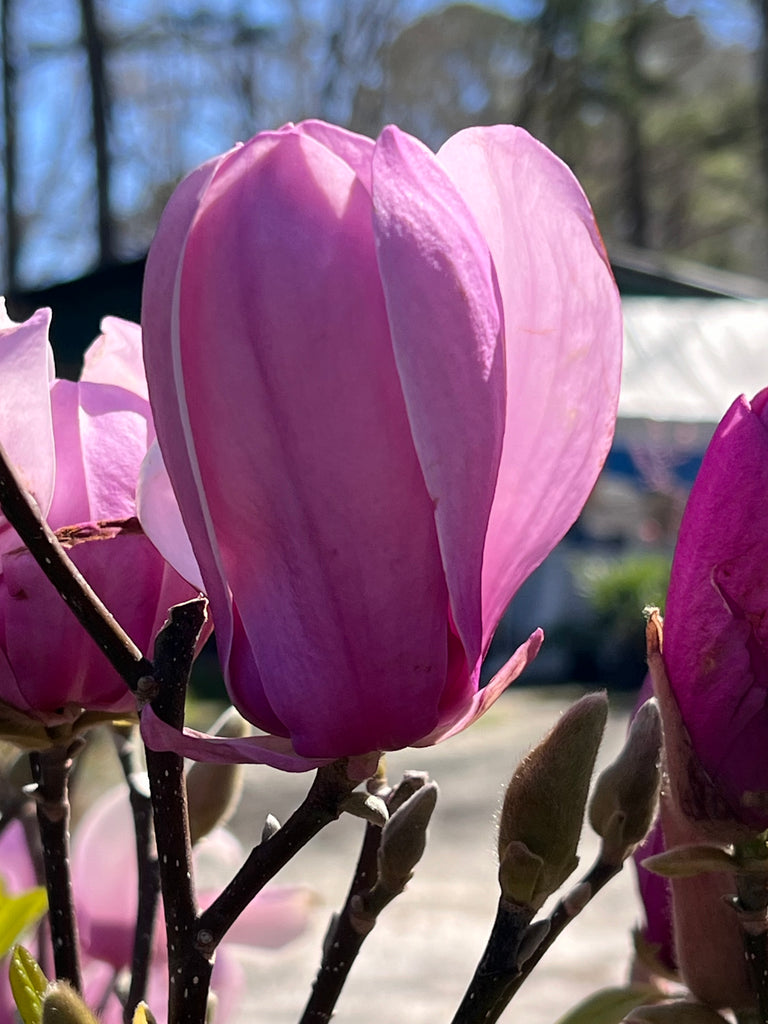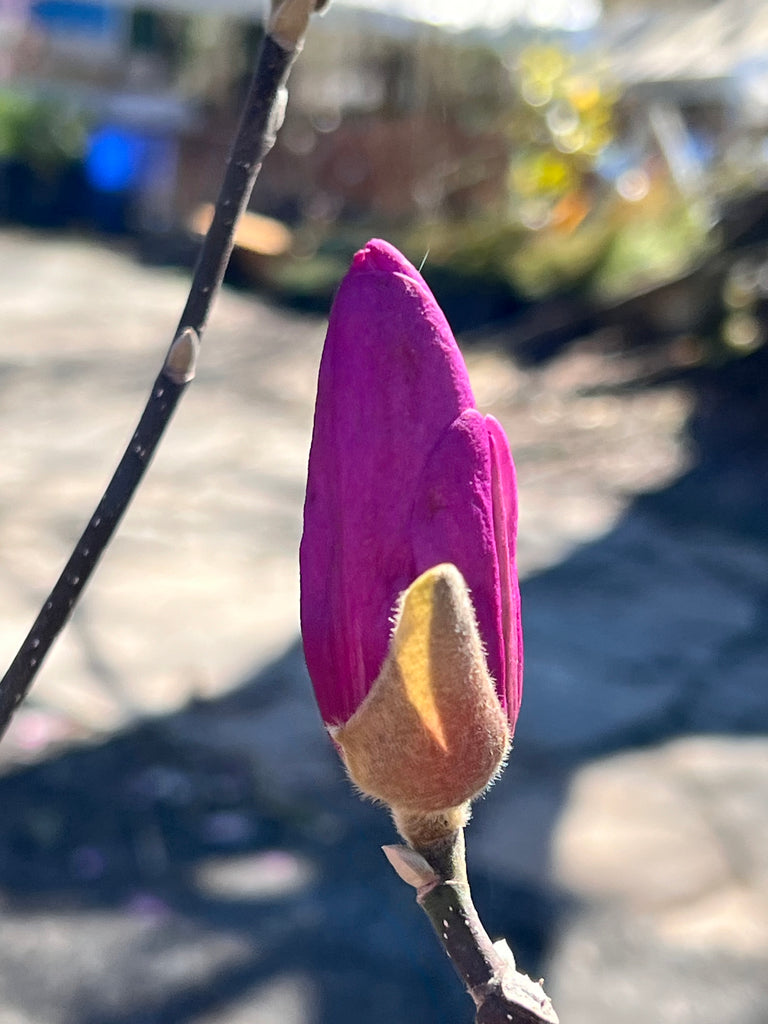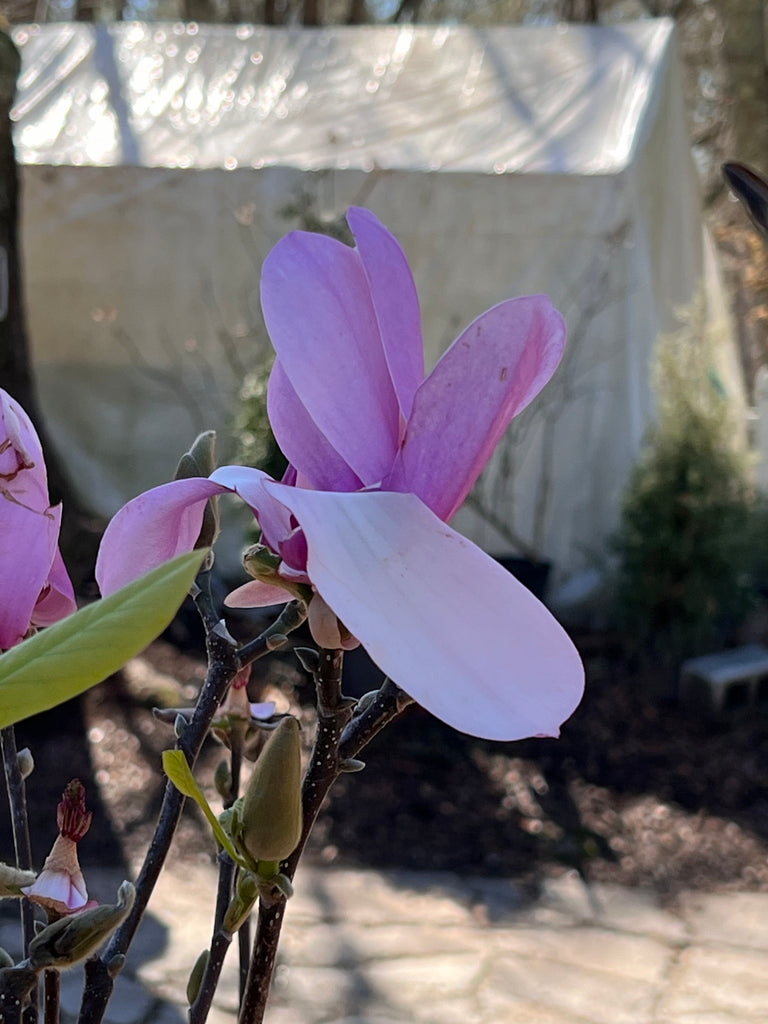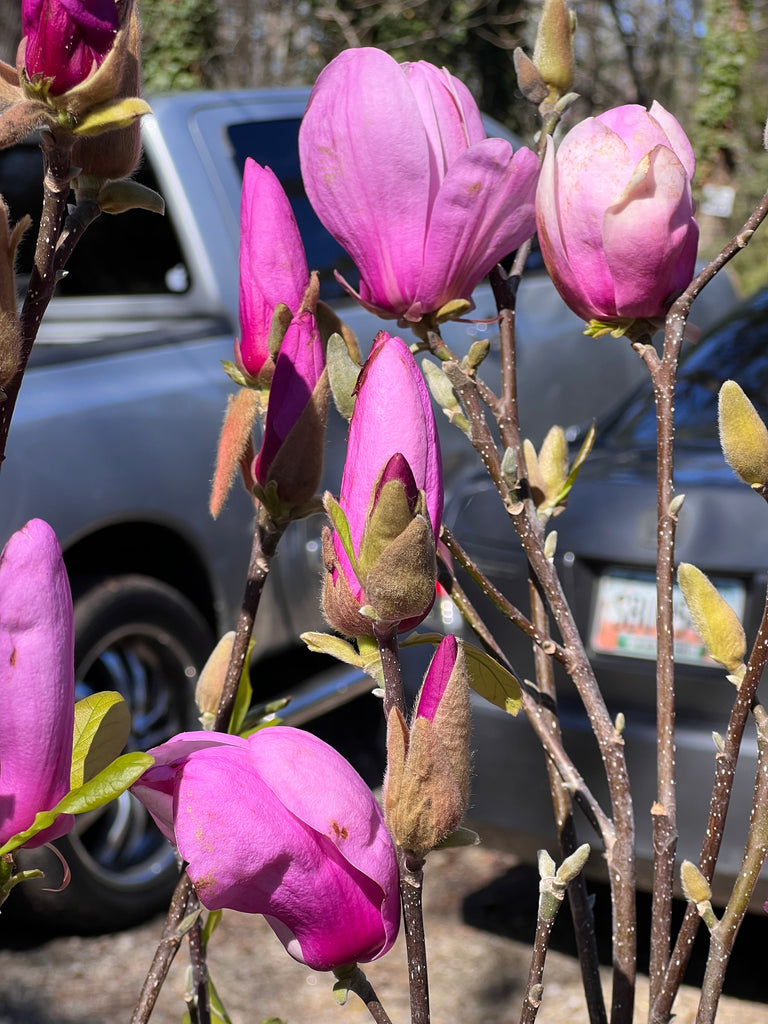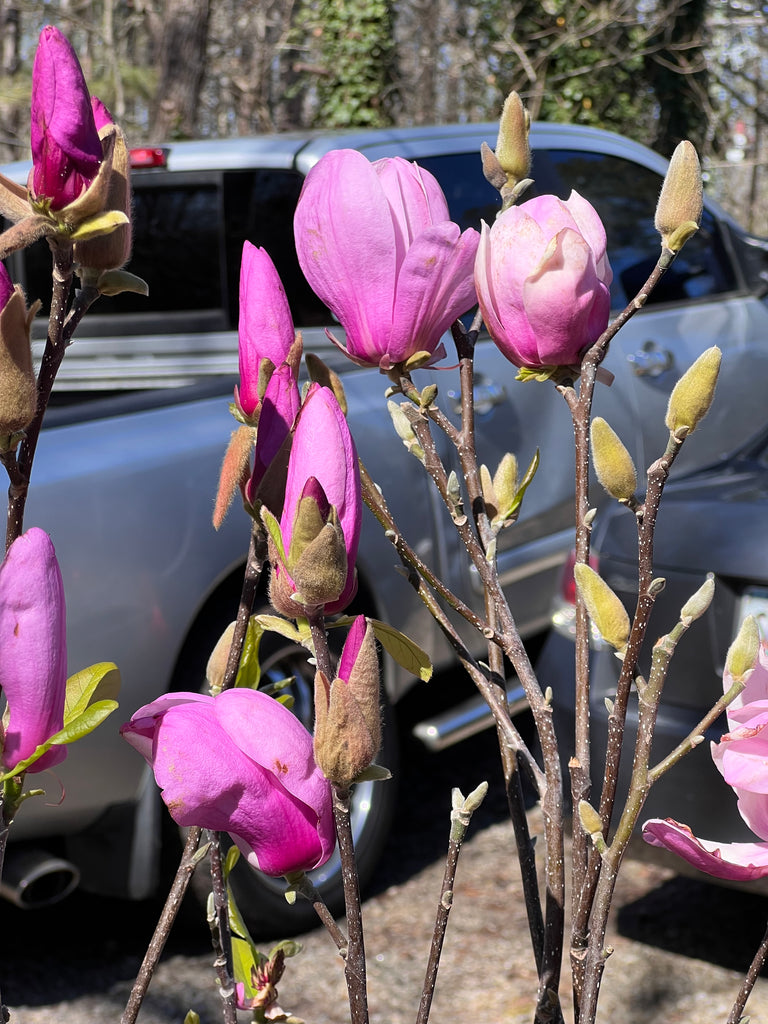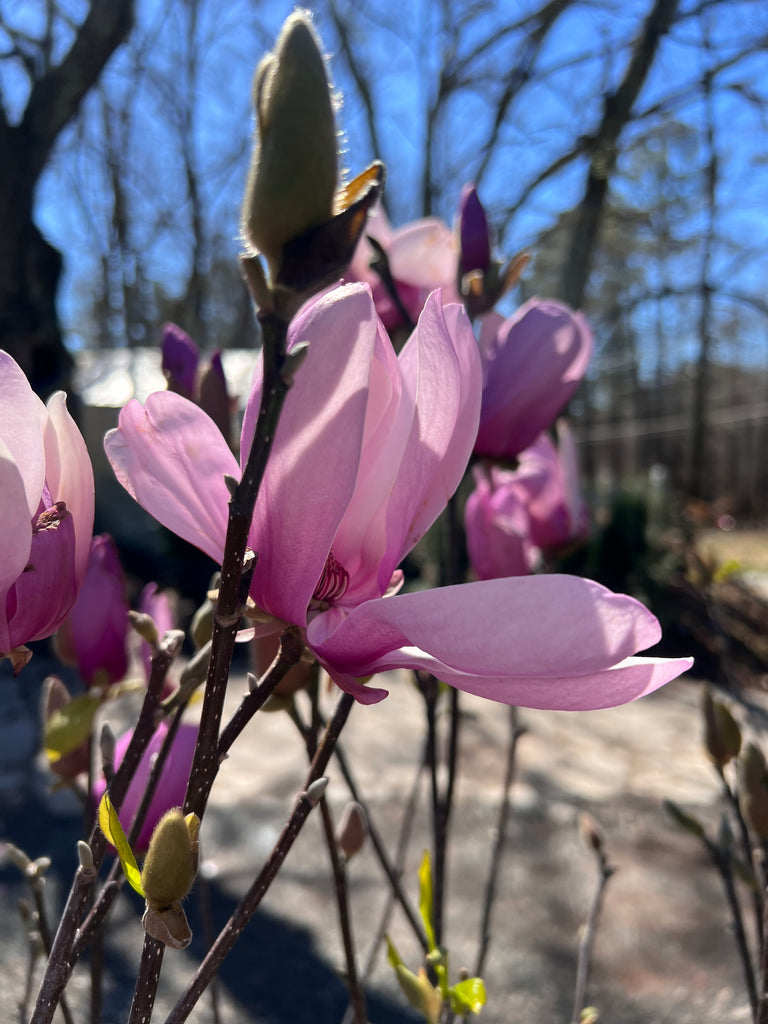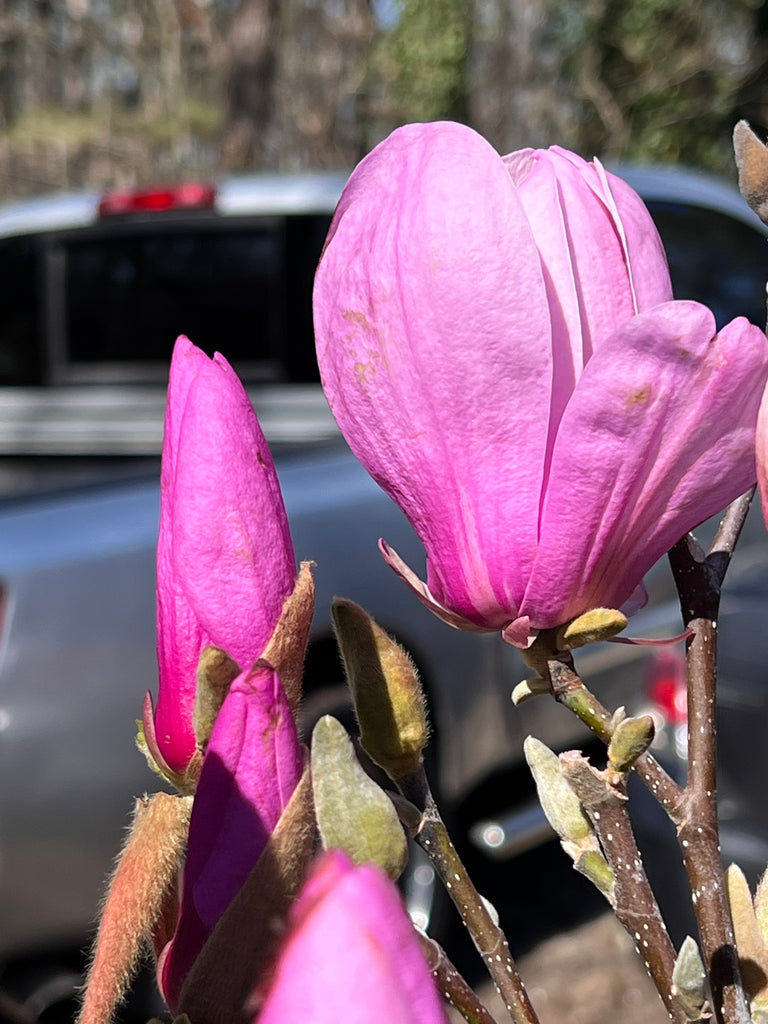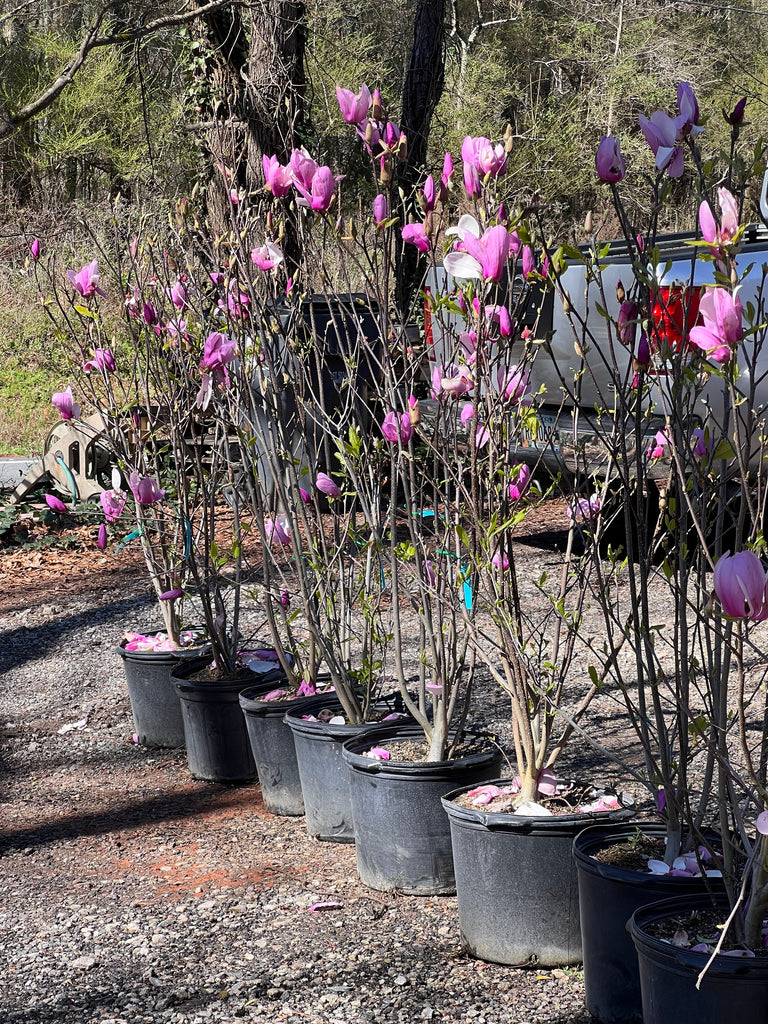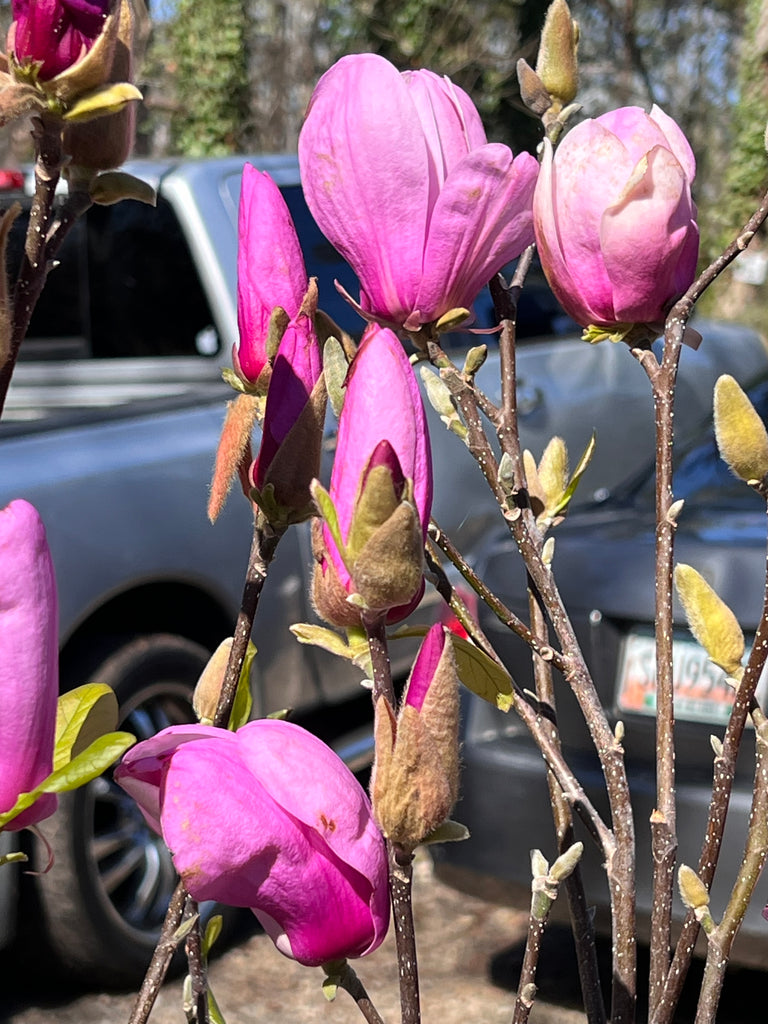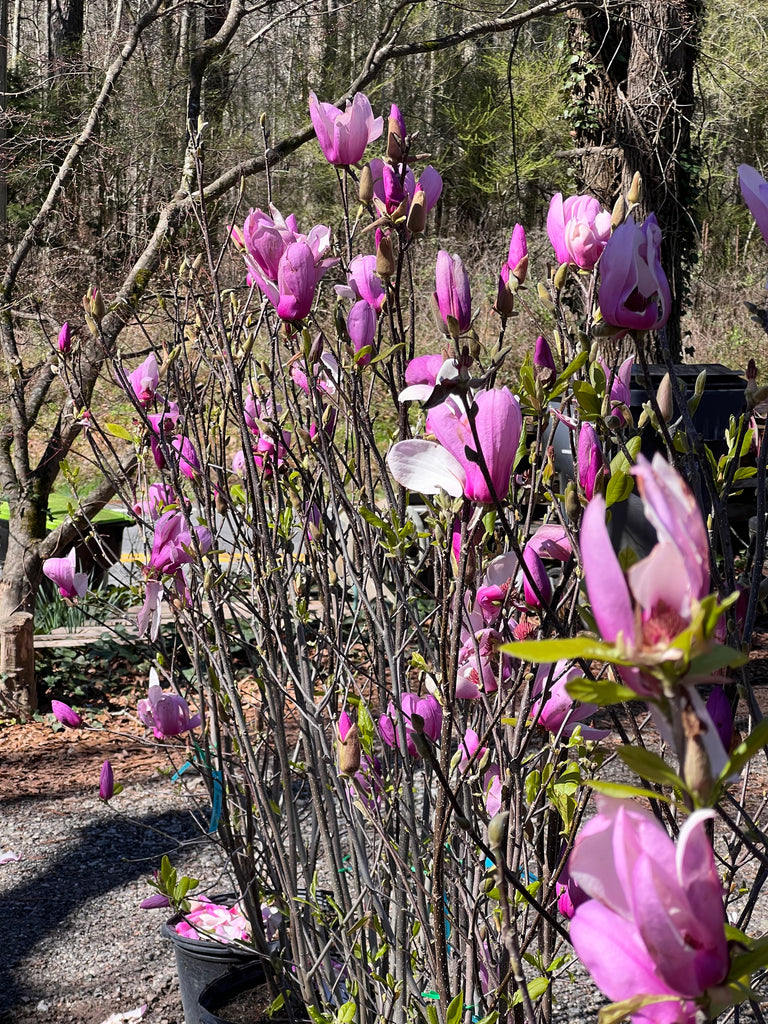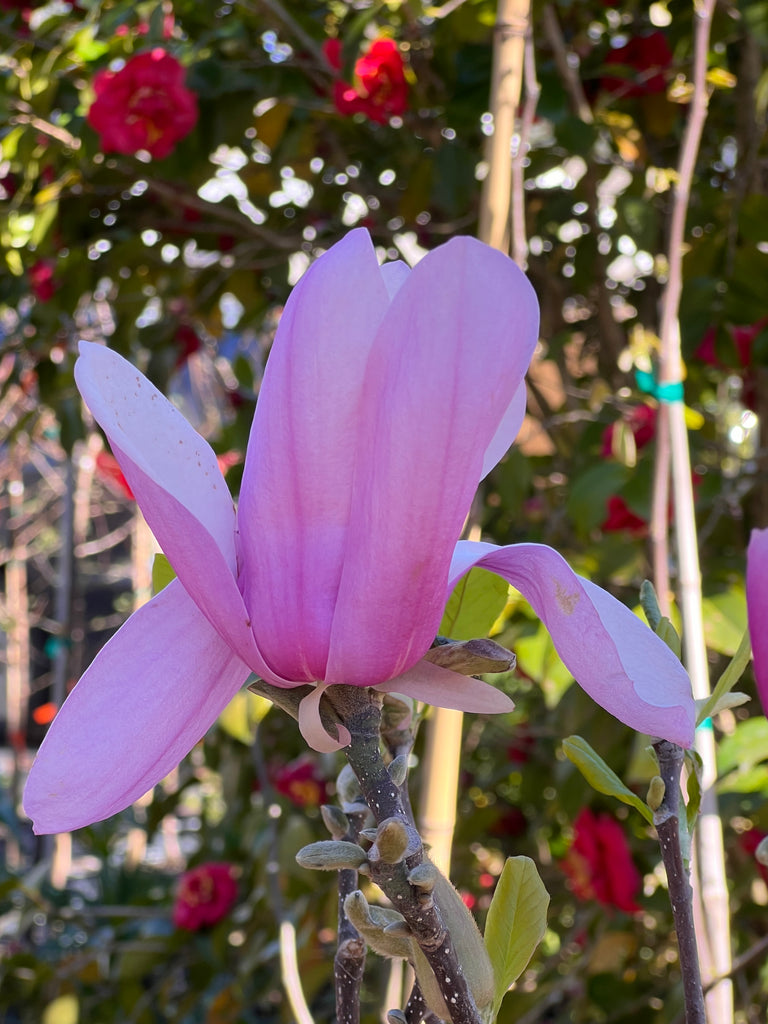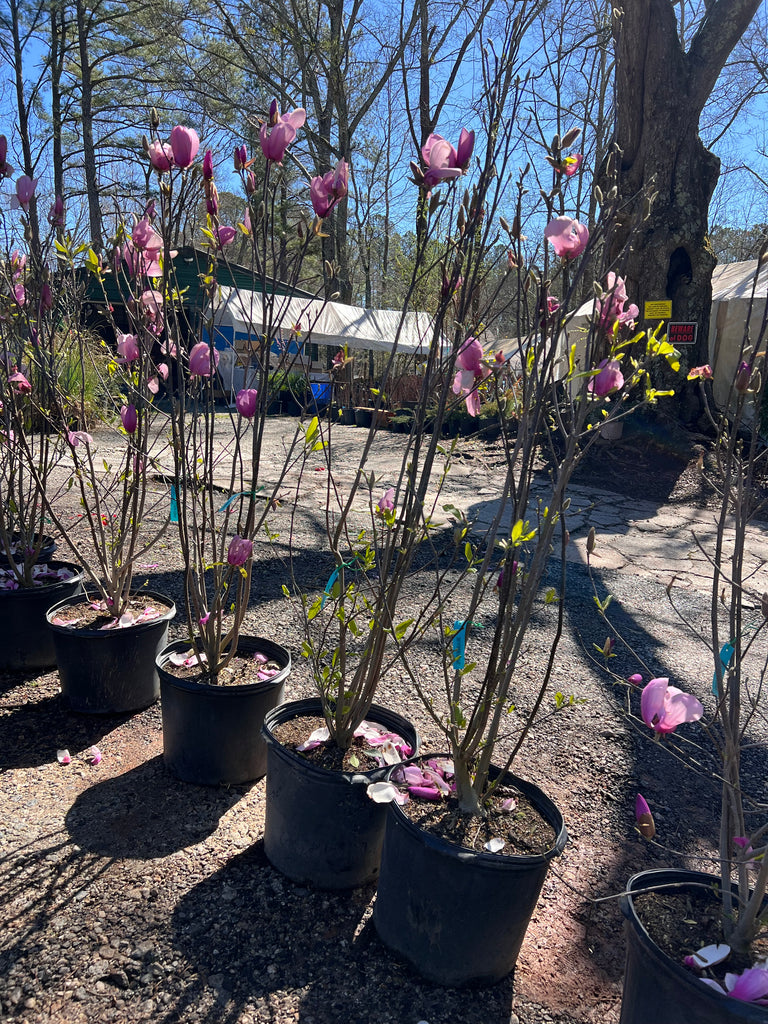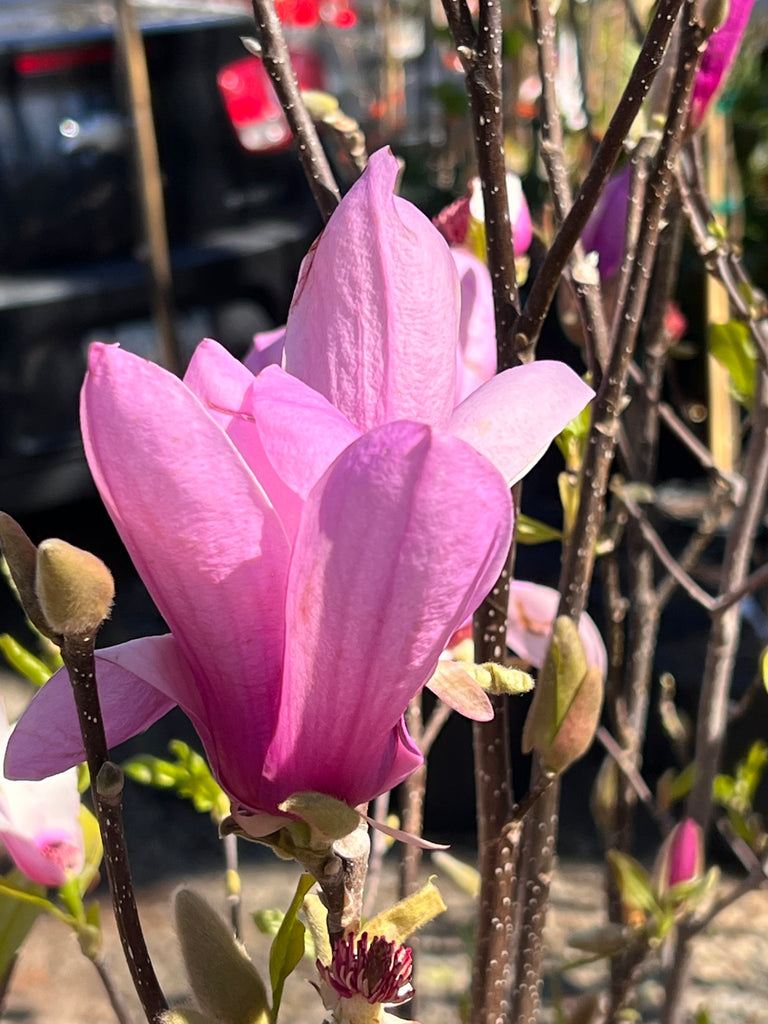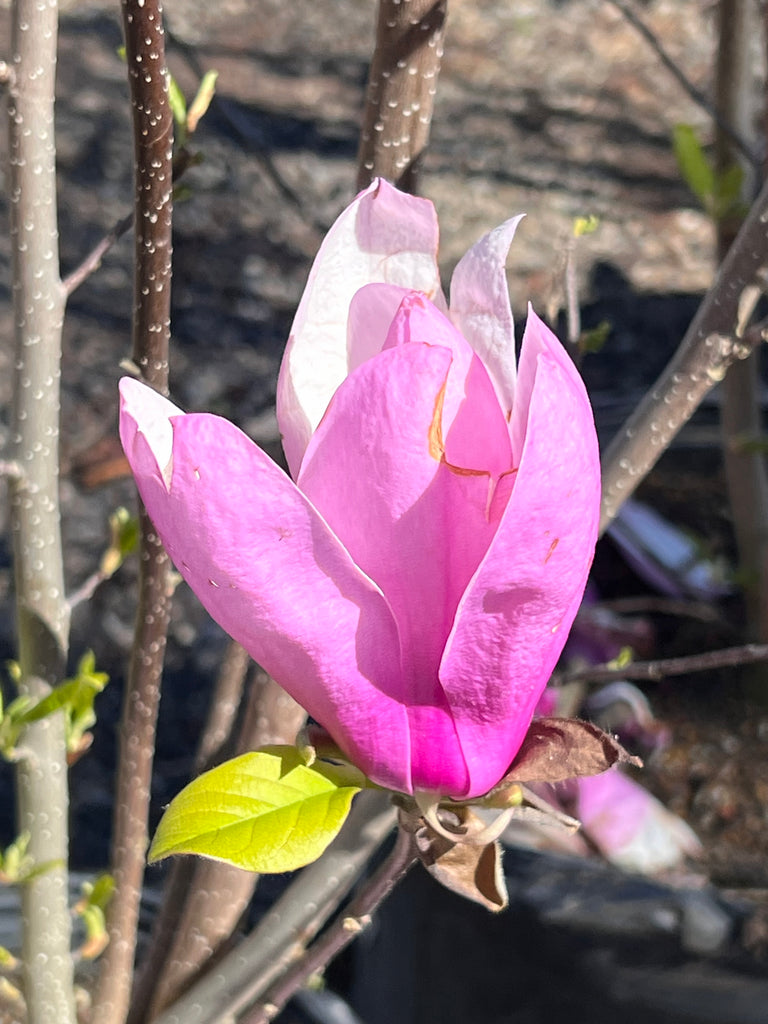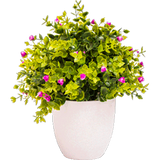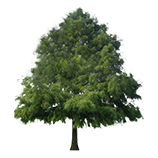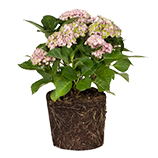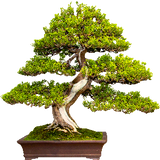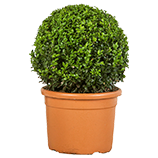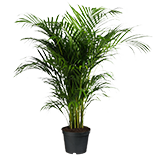
Description
🍀Jane Magnolia Tree's Key Characteristics
The Jane Magnolia, scientifically known as Magnolia x Soulangeana 'Jane,' is a captivating deciduous shrub celebrated for its exquisite beauty and remarkable features. Originating from the hybridization of Magnolia Liliiflora and Magnolia Stellata, this stunning cultivar has become a favorite among gardeners and landscape enthusiasts alike.
One of the most enchanting features of the Jane magnolia is its prolific blooming habit. In early spring, before the emergence of leaves, the tree bursts into a spectacular display of goblet-shaped flowers. These blooms of the magnolia tree plant, vary in shades of pink and purple. They also exude a delightful fragrance that attracts pollinators such as bees and butterflies.
🌳 Origin, Growing Conditions, and Optimal Habitat For Jane Japanese Magnolia Tree
The Magnolia Jane shrub traces its origins to the skilled breeding efforts aimed at combining the desirable characteristics of different Magnolia species. Developed by renowned horticulturists, this cultivar emerged as a testament to the beauty and diversity within the magnolia genus. Japanese magnolia care is something that has been carried out for years in ancient towns in Japan.
One of the most striking features of the Jane Magnolia tree is its abundant and colorful blooms. In early spring, even before the leaves unfurl, the tree becomes adorned with an array of goblet-shaped flowers in shades of pink and purple. These fragrant blossoms not only add aesthetic appeal but also attract pollinators, contributing to the ecosystem's biodiversity.
More details about the Magnolia Jane shrub is given in the table on the right.
✨ Care and Maintenance of Jane Magnolia Tree Plant
Proper care and maintenance are essential for ensuring the health, vigor, and blooming prowess of your Jane Magnolia tree. With a few simple practices, you can help your magnolia thrive and become a focal point of beauty in your garden.
- Site Selection: When planting your Jane Magnolia, choose a location that receives full to partial sunlight. Ensure the soil is well-draining and rich in organic matter. Avoid areas prone to waterlogging, as excessive moisture can lead to root rot.
- Watering: While the Jane Magnolia is relatively drought-tolerant once established, regular watering is crucial, especially during periods of dryness. Provide deep, thorough watering sessions rather than frequent shallow watering to encourage deep root growth. Aim to keep the soil consistently moist but not waterlogged.
- Fertilization: To promote healthy growth and abundant blooming, fertilize your Jane Magnolia tree annually in early spring before new growth begins. Use a balanced fertilizer formulated for flowering shrubs or trees. Avoid high-nitrogen fertilizers, as they can stimulate excessive foliage growth at the expense of flowers.
- Pruning: Pruning is essential for maintaining the shape, size, and overall health of your Jane Magnolia tree. Perform pruning immediately after flowering to avoid cutting off next season's flower buds. Remove any dead, diseased, or crossing branches, and thin out dense growth to improve airflow and sunlight penetration.
- Pest and Disease Management: Monitor your Jane Magnolia tree regularly for signs of pests such as scale insects and aphids, as well as common fungal diseases like powdery mildew. Treat infestations promptly using organic or chemical control methods as necessary. Ensure good air circulation around the tree to discourage fungal growth.
- Mulching: Apply a layer of organic mulch, such as shredded bark or compost, around the base of the Jane Magnolia tree. Mulching helps conserve soil moisture, suppresses weed growth, and insulates the roots from temperature extremes. Leave a gap between the mulch and the tree trunk to prevent moisture-related issues.
- Winter Protection: In regions where winters are harsh, consider providing winter protection for your Jane Magnolia tree. Apply a layer of mulch around the base of the tree to insulate the roots and protect them from freezing temperatures. Avoid pruning in late fall or winter, as it can stimulate new growth vulnerable to frost damage.
🔎 Searching For "Where to Buy Jane Magnolia Tree in Atlanta"?
If you're looking to add the enchanting beauty of the Jane Magnolia tree plant to your garden, you'll want to find a reliable source for purchasing this captivating specimen. Fortunately, there are several options available, including local nurseries, garden centers, and online retailers.
When considering where to buy your Jane Magnolia tree, it's essential to choose a reputable supplier that offers high-quality plants and excellent customer service. One such option is Pixies Gardens, a trusted name in the horticultural industry known for its wide selection of premium trees, shrubs, and perennials.
At Pixies Gardens, you'll find a diverse range of Jane Magnolia trees, carefully cultivated to thrive in various growing conditions. Whether you're a seasoned gardener or a novice enthusiast, Pixies Gardens provides expert guidance and support to help you select the perfect Jane Magnolia tree for your backyard.
💡 Frequently Asked Questions (FAQs)
1. Where is the best place to plant a Jane Magnolia?
The best place to plant a Jane Magnolia is in a location that receives full to partial sunlight and has well-drained soil rich in organic matter. Consider planting it as a focal point in your garden, where its stunning blooms can be showcased. At Pixies Gardens, our expert horticulturists recommend planting your Jane Magnolia in an area with good air circulation to minimize the risk of fungal diseases. Browse our collection of Jane Magnolia trees to find the ideal specimen for your landscape.
2. When to plant Magnolia tree?
The optimal time to plant a Magnolia tree, including the Jane Magnolia, is during the dormant season in late fall or early spring. Planting during these times allows the tree to establish its root system before the onset of harsh weather or hot summer temperatures. At Pixies Gardens, we offer a wide selection of healthy and well-established Magnolia trees, perfect for planting during the ideal times for optimal growth and success in your garden.
3. Are Jane Magnolia trees messy?
Compared to some other flowering trees, Jane Magnolia trees are relatively low-maintenance and not considered particularly messy. While they do drop spent flowers after blooming, the cleanup is minimal and typically not a cause for concern. Magnolia tree in bloom look damn amazing, but only if care for magnolia tree is done properly.
4. How fast do Magnolia trees grow?
Magnolia trees, including the Jane Magnolia, are known for their moderate growth rate. On average, Magnolia trees can grow 1 to 2 feet per year under optimal growing conditions. Factors such as soil quality, sunlight exposure, and water availability can influence the growth rate. Magnolia blooming time should be kept in mind.
5. When do Magnolias bloom?
Magnolias, including the Jane Magnolia, typically bloom in early spring, before the emergence of leaves. The exact magnolia tree bloom time can vary depending on factors such as climate and local weather conditions. Generally, you can expect Magnolia trees to burst into a spectacular display of flowers from late February to early April.
6. When to trim Magnolia tree?
It's best to trim a Magnolia tree, including the Jane Magnolia, immediately after flowering, typically in late spring or early summer. Pruning at this time helps promote optimal blooming in the following season and reduces the risk of cutting off next year's flower buds.
7. When to plant Magnolia tree?
The optimal time to plant a Magnolia tree, including the Jane Magnolia, is during the dormant season in late fall or early spring. Planting during these times allows the tree to establish its root system before the onset of harsh weather or hot summer temperatures.
Growing Zones: 4-8

| Parameter | Details |
|---|---|
| Family | Magnoliaceae |
| Growth Habit | Deciduous shrub/tree |
| Height | Varies by cultivar, typically 10 to 15 feet (3 to 4.5 meters) |
| Lifespan | 50 to 150 years in optimal conditions |
| Hardiness Zones | USDA Zones 4 to 8 (varies by cultivar) |
| Temperature (F) | Optimal growth between 60°F to 80°F (15°C to 27°C) |
| pH Range | 5.5 to 6.5 |
| Sun Exposure | Full sun to partial shade |
| Watering Needs | Regular watering, especially during dry periods |
| Pruning Requirements | Prune immediately after flowering to maintain shape and encourage blooming in the next season |
| Flowering Season | Early spring |
| Flower Color | Various shades of pink and purple |
| Fruit Ripening Season | Not applicable |
| Fruit Color | Not applicable |
| Fruit Flavor | Not applicable |
| Propagation Methods | Grafting, budding, or cuttings |
| Pests and Diseases | Susceptible to scale insects, aphids, and fungal diseases such as powdery mildew |
| Maintenance | Minimal maintenance required, except for occasional pruning and pest/disease management |
| Landscape Use | Suitable for borders, specimens, and mixed plantings |
| Wildlife Attraction | Attracts pollinators such as bees and butterflies |
BUY FLOWERS, PLANTS AND TREES ONLINE ➔
Pixies Gardens is the best online plant nursery for all your gardening desires. When you buy fruit plants or buy shrubs from our online tree nursery, we make sure that each of our trees is producing fruit.
Our aim is to provide high-quality trees and plants for people who want to buy trees. With top-notch customer service at our online plant nursery here in ,Georgia, we want to create gardens where nature converses with the soul...
Our plant nursery online offers an extensive collection of flowering plants, lush trees, and vibrant shrubs.
Even if you want to buy artificial plants, we've got that too! So, decorate living rooms with indoor planters or buy evergreen trees, grow fruit trees, and set up outdoor planters with Pixies Gardens today!
Shop by Categories
View All Products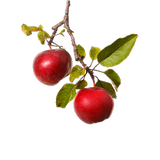
Fruit Plants/Apple Trees
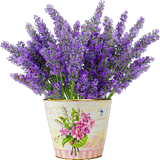
Flowering/Fragrant Plants
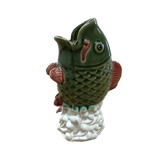
Ceramic Pot


